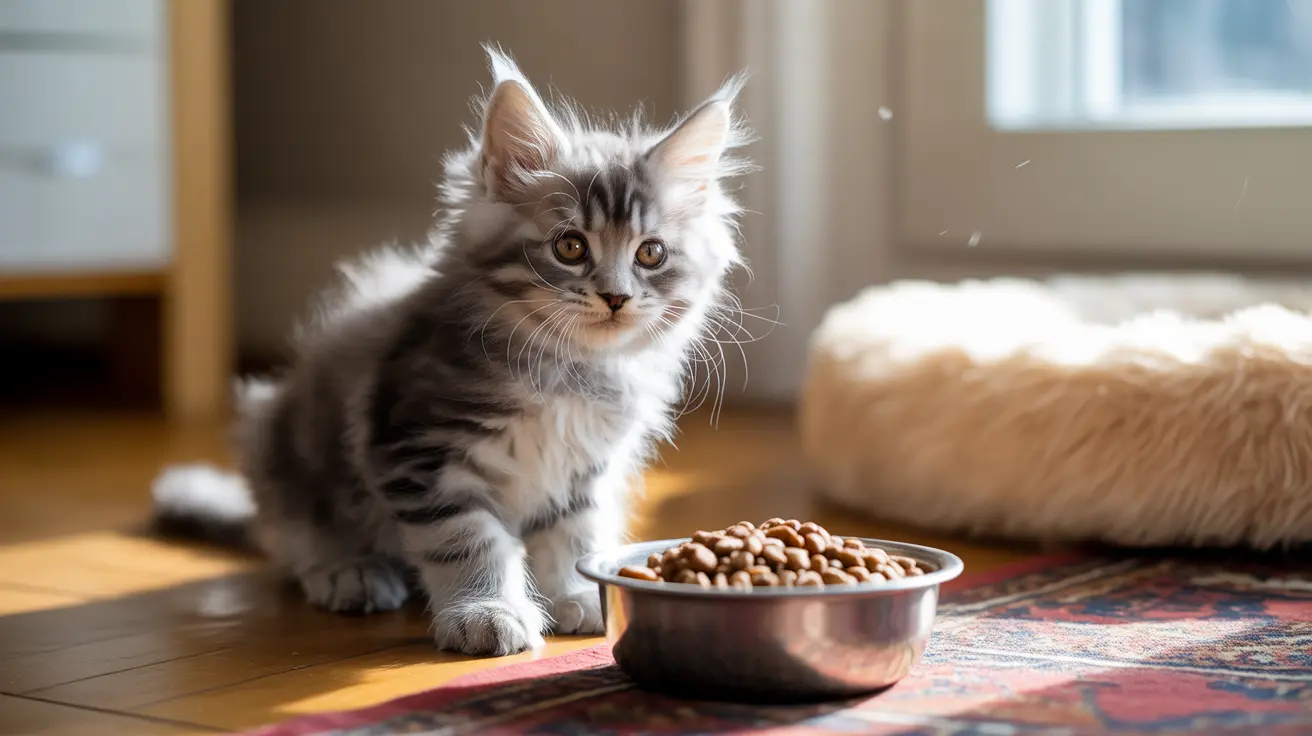The Crucial Differences Between Kitten and Adult Cat Food
Kitten food is specifically formulated to support rapid growth and development. It contains significantly higher levels of protein (35-50%) compared to adult cat food (25-40%), along with increased fat content and calories to fuel their boundless energy.
Key nutritional differences include:
- Higher protein levels for muscle development
- Increased fat content for energy
- More DHA for brain and vision development
- Enhanced calcium and phosphorus for bone growth
- Smaller, softer kibble size for developing teeth
Understanding the Impact of Adult Cat Food on Kittens
When kittens regularly consume adult cat food instead of their age-appropriate nutrition, several issues can arise:
Immediate Effects
- Insufficient calorie intake
- Reduced energy levels
- Possible digestive upset
Long-term Consequences
- Stunted growth and development
- Weakened immune system
- Poor bone and muscle formation
- Delayed cognitive development
Safe Feeding Practices for Multi-Cat Households
Managing feeding time in homes with both kittens and adult cats requires strategic planning:
Practical Solutions
- Set up separate feeding stations
- Feed cats at scheduled times rather than free-feeding
- Use different room levels or baby gates to create designated eating areas
- Consider microchip-activated food bowls for adult cats
When to Transition to Adult Cat Food
Most kittens should transition to adult cat food around 12 months of age. Large breeds like Maine Coons may need to wait until 18-24 months. The transition should be gradual, typically occurring over 7-10 days:
- Days 1-3: 75% kitten food, 25% adult food
- Days 4-6: 50% kitten food, 50% adult food
- Days 7-9: 25% kitten food, 75% adult food
- Day 10: 100% adult food
Frequently Asked Questions
What happens if my kitten accidentally eats my older cat's food?
A single instance of eating adult cat food won't harm your kitten. However, if it becomes a regular occurrence, your kitten may not receive the necessary nutrients for proper growth and development.
Why should kittens eat kitten food instead of adult cat food?
Kitten food contains higher levels of protein, calories, and essential nutrients specifically formulated to support rapid growth, brain development, and high energy needs during the first year of life.
When and how should I transition my kitten from kitten food to adult cat food?
Begin the transition around 12 months of age using a gradual 7-10 day process, slowly increasing the proportion of adult food while decreasing kitten food. Monitor your kitten for any digestive issues during the transition.
Can feeding my kitten adult cat food regularly cause health problems?
Yes, regular consumption of adult cat food can lead to nutritional deficiencies, stunted growth, weakened immunity, and poor muscle and bone development in kittens.
Are "all life stage" cat foods safe for both kittens and adult cats?
Yes, foods labeled "all life stages" are formulated to meet both kitten and adult nutritional requirements and are safe for both age groups. However, dedicated kitten food is often the optimal choice for growing kittens.
Conclusion
While an occasional taste of adult cat food won't harm your kitten, maintaining a proper kitten-specific diet is crucial for healthy development. If you're concerned about your kitten's nutrition or need help managing feeding times in a multi-cat household, consult with your veterinarian for personalized advice.






